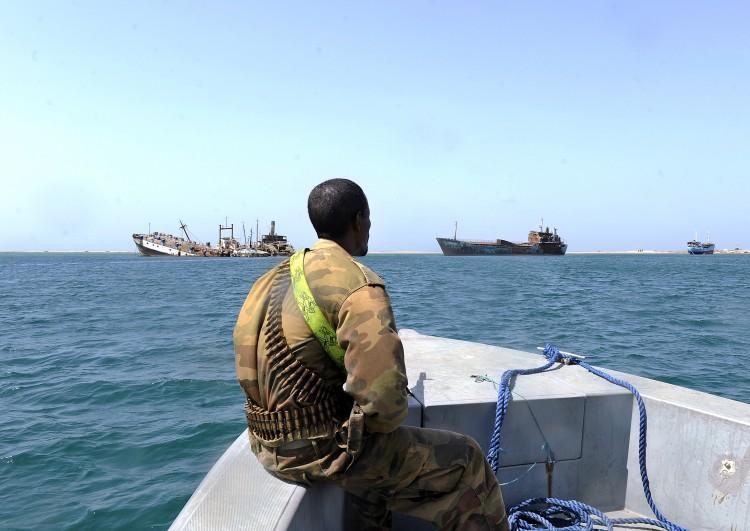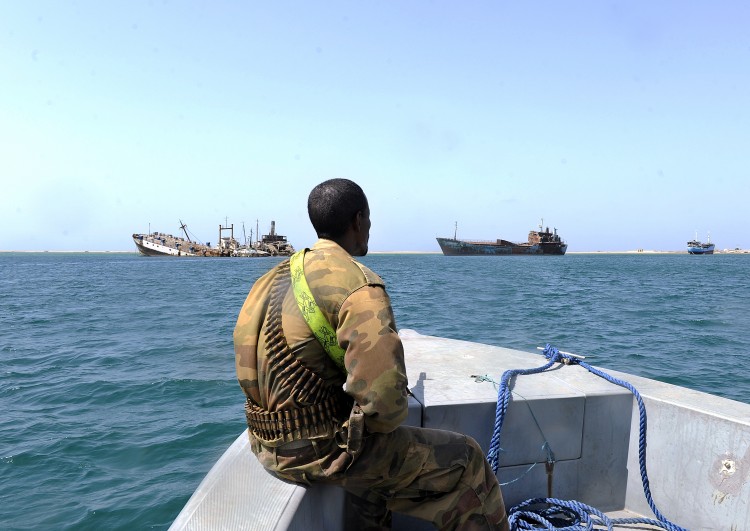Worldwide sea piracy has fallen to a five-year low, with declines in attacks and hijackings by Somali pirates, according to a new report, which said that piracy is still on the rise in West Africa.
The International Maritime Bureau (IMB) reported that there were 297 attacks on ships in 2012, down from 439 in 2011. The IMB said that 28 vessels were hijacked, 585 crew were kept hostage, and six were killed last year.
The decrease in attacks and hijackings last year were due to an increased use of armed guards on shipping vessels and intervention by government navies, according to the IMB.
There were only 75 attacks off the coast of Somalia and the Gulf of Aden in 2012, down from 237 incidents in 2011. Somali pirates hijacked 14 vessels in 2012, compared with 28 during the previous year.
“IMB’s piracy figures show a welcome reduction in hijackings and attacks to ships. But crews must remain vigilant, particularly in the highly dangerous waters off East and West Africa,” Pottengal Mukundan, the head of IMB, said in a statement.
Mukundan said that while 2012’s figures are a welcome change, the threat posed by Somali pirates—who use automatic rifles and rocket-propelled grenades—is still great. As of December 2012, Somali pirates were still holding 103 hostages on 8 ships and 23 others on land.
“The continued presence of the navies is vital to ensuring that Somali piracy remains low,” said Mukundan. “This progress could easily be reversed if naval vessels were withdrawn from the area.”
There has been a notable increase in piracy in the Gulf of Guinea, located in West Africa, with 58 incidents reported in 2012, IMB said. Ten ships were hijacked and 207 crew members were taken hostage while “pirates in this area are particularly violent, with guns reported in at least 37 of the attacks,” the organization said.
There have also been a number of attacks and hijackings in Southeast Asia and across the Indonesian archipelago, a number which has been increasing over the past years.
Glen Forbes, the head of the anti-piracy Oceanus Live group, told Bloomberg News that pirates are still actively looking to hijack ships, saying that IMB’s statistics do not classify some of them as attacks.
“There’s an increase in approaches but not actual attacks and that’s not being reported, or being under-reported as navies often say ships are mistaking pirates for fishing vessels,” Forbes told the agency.






